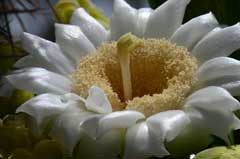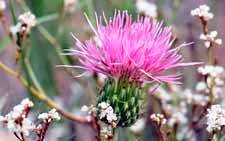Passiflora arizonica, Arizona Passionflower
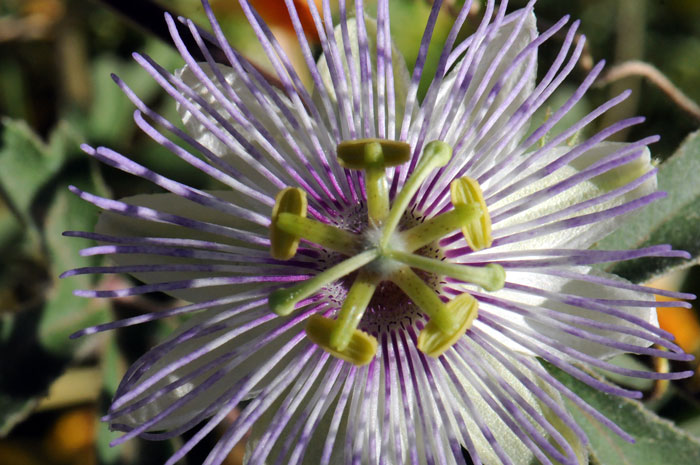
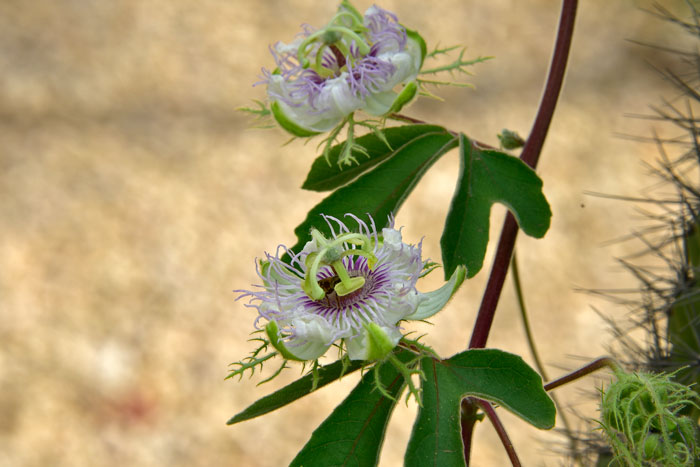
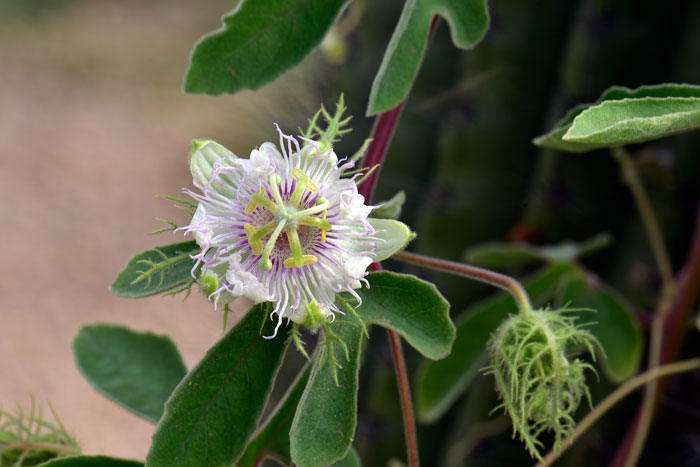
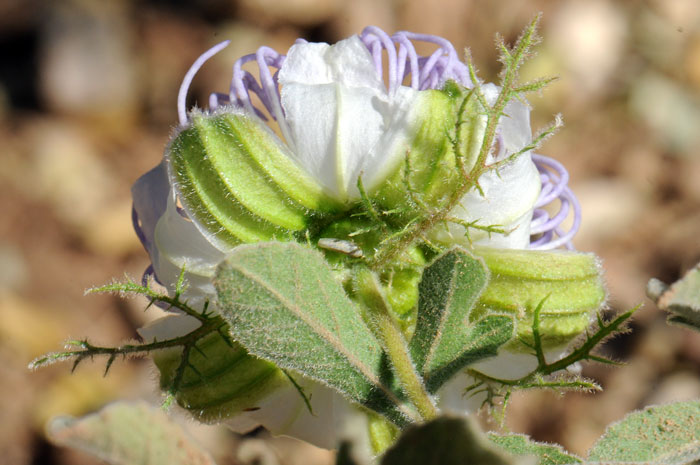
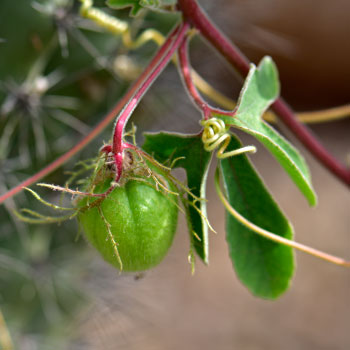
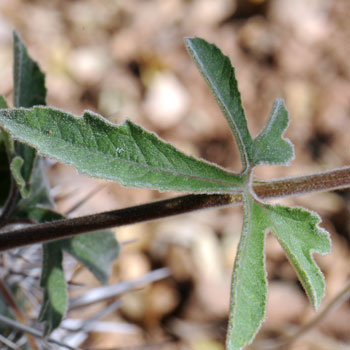
Scientific Name: Passiflora arizonica
Common Name: Arizona Passionflower
Also Called: Passion Flower
Family: Passifloraceae or Passion Vine Family
Synonyms: (Passiflora arizonica)
Status: Native
Duration: Perennial
Size: Up to 10 feet tall in adjacent shrubs, otherwise up to 9 feet wide.
Growth Form: Forb/herb, vine; plants pubescent nearly throughout.
Leaves: Green; palmately lobed with 3 to 5 lobes, bracts deeply pinnatisect, stipules also pinnatisect.
Flower Color: Pink, White and purple; showy, up to ½ inches, corolla in several ranks with peduncles, sepals sub-equal to or just shorter than the petals (see photo above), fruit a small, oval shaped berry about 1 inch around.
Flowering Season: June to August or October.
Elevation: 3,700 to 5,600 feet.
Habitat Preferences: Canyons of the west side of the Baboquivari Mountains, outcrops in desert grasslands.
Recorded Range: Arizona Passion Flower is extremely rare in North America where it native to Arizona and Mexico. It is found only in Pima and Santa Cruz counties and in northern Mexico.
North America & US County Distribution Map for Passiflora arizonica.
U.S. Weed Information: No information available.
Invasive/Noxious Weed Information: No information available.
Wetland Indicator: In North America Passiflora arizonica has the following wetland designations; Arid West, FAC; FAC = Facultative, occur in wetlands and non-wetlands.
Threatened/Endangered Information: No information available.
Genus Information: USDA Plants.gov lists 50 species for Passiflora mostly in the southern half of the United States.
The USDA Plants.gov also reports that Arizona has 4 species in Passiflora, California has 3 species, New Mexico has 0 species and Texas has 8 species.
The Plant List identifies more than 500 species names.
Comments: Arizona Passionflower is found only in Arizona and Sonora Mexico. The type specimen is from the Baboquivari Mountains, Pima, Arizona. Arizona Passionflower is very similar to Passiflora bryonioides which is found in similar locations in southern Arizona.
In Southwest Desert Flora also see Mexican Passionflower, Passiflora, mexicana.
